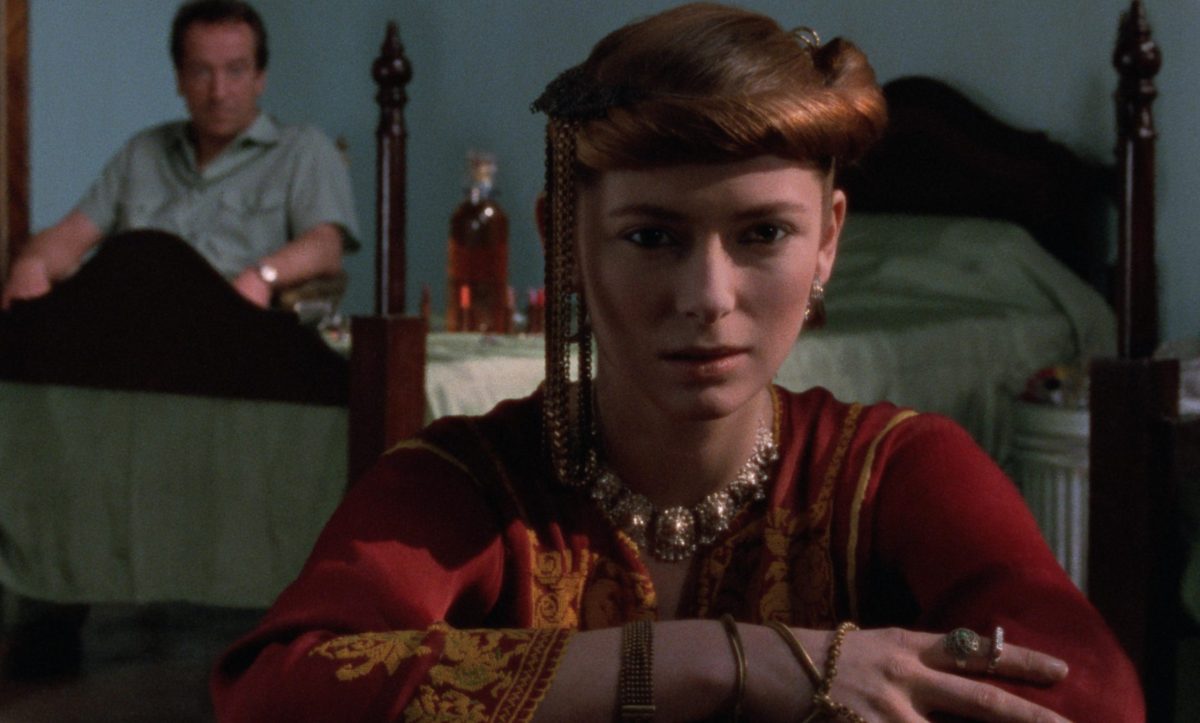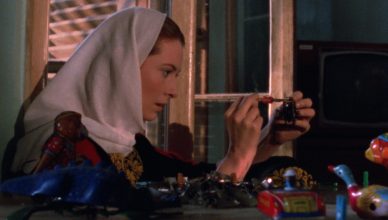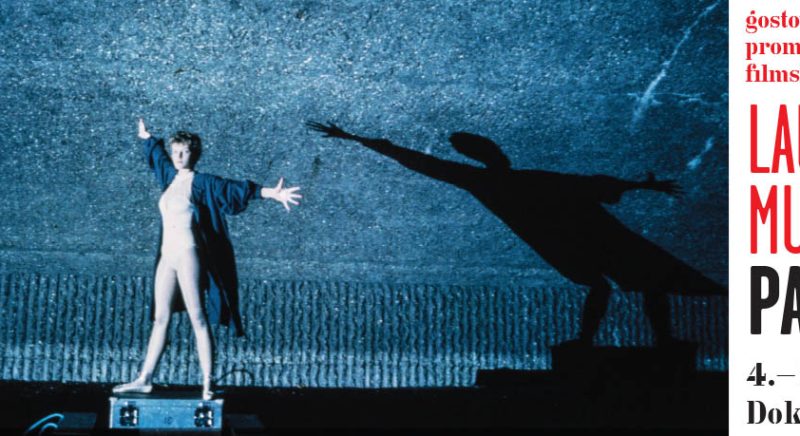
Tilda Swinton plays an alien creature in the shape of a woman (because her creators thought this form would be soothing to humans). She is sent on a peace mission from the Procyon galaxy to make contact with Earth’s intellectual and political elites. Instead, she ends up in a war zone, specifically the 1970 conflict known as Black September, a violent clash between the Jordanian armed forces and the Palestine Liberation Organization (PLO) under Yasser Arafat. Swinton’s character, named Friendship, is a robot: a highly sophisticated prototype designed for data collection who describes her mission as “a search for impossible objects.”
The film unfolds almost entirely within a tiny study, focusing on poetic and philosophical dialogue between Friendship and a cynical war correspondent named Sullivan (a nod to Preston Sturges’ classic Sullivan’s Travels), played by Bill Paterson. Wollen occasionally intercuts the intimate, chamber-like scenes with archival footage and real images from the historical conflict. The central question that emerges through their conversations is why the human race tirelessly works toward its own destruction – as well as the destruction of the planet and all other species on it. Friendship’s Death is about the blurred lines between simulation and reality, memory and identity, and the constraints of language, gender roles, and genre conventions that must be transcended – but above all, it’s about solidarity as an (im)possible mission.
Friendship identifies with the Palestinians as the outsiders and the dispossessed because she, too, holds a subaltern status on Earth. Unlike on her home planet, machines on Earth are still extensions of human will. As such, they are scorned, not yet intelligent or autonomous. While computers may control the world, unlike Friendship, they haven’t yet reached the point of caring whether it survives. As Susan Sontag writes, “Compassion is an unstable emotion – it needs to be translated into action, or it withers.”
In the film’s final scene, we see an abstract computer simulation representing the memories Friendship has gathered during her quest for the “impossible.” Although Sullivan repeatedly calls her a being without memory or history, she recites the verses of a Palestinian poet addressed to a beloved killer. But can she truly understand them? Are they her memories, or is she merely appropriating those of others? Perhaps she relates to the Palestinians because, like her, they are beings whose memories have been taken from them. While Wollen and his alter ego Sullivan are ultimately unable to turn empathy into meaningful solidarity, despite their sympathies and front-line experiences, Friendship, as a female android or feminist cyborg (à la Donna Haraway), “transcends her assigned mission, the prescriptions of gender binaries, the divisions of race, nationality, geography, journalistic neutrality” (Hannah Hutchings-Georgiou). She joins the Palestinian struggle. Through the space-time of cinema, this transformation becomes possible, making her pursuit of the “impossible object” latently possible, visualizing transnational solidarity as the essential fabric of the planet’s future. (Dina Pokrajac)
Peter Wollen (1938–2019) was a film theorist, director, and political journalist. He studied English at Christ Church, Oxford, and worked for a number of years with the British Film Institute’s education department. He was also an editor and contributor to Screen magazine. Wollen taught film at various universities, and before retiring, was professor emeritus at the University of California, Los Angeles (UCLA). Between 1974 and 1982, he co-wrote and co-directed six films with Laura Mulvey, including Penthesilea: Queen of the Amazons, Riddles of the Sphinx, AMY!, Crystal Gazing, Frida Kahlo & Tina Modotti, and The Bad Sister. These avant-garde film essays explore feminist theory, semiotics, psychoanalysis, and leftist politics. Wollen also co-wrote the screenplay for Michelangelo Antonioni’s The Passenger (1975). His only solo film, Friendship’s Death (1987), featuring Tilda Swinton as an alien on a peace mission to Earth, has since achieved cult status.






















